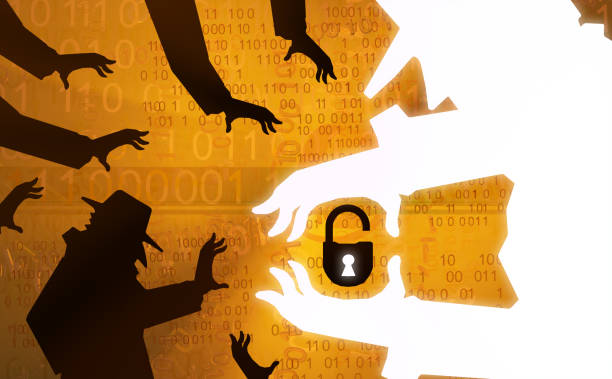
Crowdsourced Hacking: When Thousands Join Forces to Breach a System
Exploring how collective hacking efforts leverage massive coordination, technology, and human ingenuity to breach cybersecurity defenses, redefining the digital battlefield in an age of interconnected threats.
✨ Raghav Jain

Introduction: The Rise of Crowdsourced Hacking
In today’s hyperconnected digital landscape, hacking is no longer the domain of lone wolves or small groups. A new and formidable approach has emerged: crowdsourced hacking, where thousands of individuals collaborate, pooling skills and resources to orchestrate large-scale cyberattacks. This collective method shifts the paradigm of cybersecurity, challenging traditional defense mechanisms and raising urgent questions about digital safety, ethics, and governance.
This article delves into the phenomenon of crowdsourced hacking, uncovering its origins, methods, and impact. We explore real-world examples, the technological enablers behind this trend, and the implications for businesses, governments, and society. Expert insights and data highlight why understanding crowdsourced hacking is vital to developing robust defenses in an evolving threat landscape.
Understanding Crowdsourced Hacking
Defining Crowdsourced Hacking
Crowdsourced hacking involves mobilizing large groups of hackers, often dispersed globally, to work together in breaching systems or disrupting services. Unlike traditional hacking, which might rely on a small, specialized team, crowdsourced attacks leverage scale, diversity of skills, and distributed effort to overwhelm security measures.
Origins and Evolution
The roots of crowdsourced hacking trace back to hacktivist collectives and open-source collaborations. Over time, the model evolved from loosely coordinated attacks to highly organized campaigns, sometimes orchestrated via social media, encrypted chat groups, or underground forums. This evolution reflects broader trends in technology, including cloud computing, real-time communication tools, and crowdsourcing platforms.
Motivations Behind Crowdsourced Attacks
The motivations vary widely: political activism, financial gain, notoriety, or even sabotage. Crowdsourced hacking blurs lines between cybercrime, cyberwarfare, and social protest, complicating responses by law enforcement and cybersecurity professionals.
The Mechanics of Crowdsourced Hacking
Recruitment and Coordination
Recruitment typically occurs on online platforms—forums, social media, encrypted messaging apps—where participants are invited to join campaigns. Coordinators, sometimes called “organizers” or “admins,” assign tasks based on skill sets, such as coding exploits, flooding networks, or gathering intelligence.
Tools and Techniques
The arsenal includes a mix of traditional hacking tools enhanced by automation and AI. Distributed Denial of Service (DDoS) attacks are common, leveraging botnets and volunteer resources. Other methods involve coordinated phishing campaigns, vulnerability exploitation, and brute-force attacks executed simultaneously to overwhelm defenses.
Communication and Collaboration
Crowdsourced hackers rely on secure, real-time communication channels to synchronize actions, share discoveries, and troubleshoot problems. This collaborative environment mimics legitimate open-source software projects but is aimed at malicious outcomes.
The Role of Technology in Enabling Crowdsourced Hacking
Cloud Computing and Infrastructure
Cloud services provide scalable infrastructure that hackers exploit to launch attacks with unprecedented volume and speed. Crowdsourced campaigns utilize cloud resources for command and control servers, anonymization, and launching attacks.
Automation and Artificial Intelligence
Automation scripts and AI-powered tools enhance the efficiency and coordination of crowdsourced attacks. AI assists in identifying vulnerabilities, automating attack vectors, and even mimicking legitimate user behavior to evade detection.
Cryptocurrency and Anonymity
Cryptocurrencies facilitate anonymous transactions, enabling the funding and incentivization of crowdsourced hacking. The decentralized nature of cryptocurrencies complicates tracking and law enforcement efforts.
Impact of Crowdsourced Hacking on Cybersecurity
Increased Scale and Complexity of Attacks
Crowdsourced hacking significantly increases the scale of attacks, making traditional defense mechanisms less effective. The simultaneous assault from numerous vectors strains network resources and response teams.
Challenges for Incident Response
The diversity and dispersion of participants complicate attribution and incident response. Coordinated mitigation requires real-time intelligence sharing and advanced threat detection technologies.
Economic and Reputational Damage
Organizations targeted by crowdsourced attacks face significant financial losses, downtime, and damage to brand reputation. The unpredictability and volume of attacks escalate recovery costs.
Legal and Ethical Dimensions
Legal Challenges
Prosecuting crowdsourced hackers is difficult due to jurisdictional issues, anonymity, and the sheer number of participants. International cooperation and updated cyber laws are essential to address these challenges.
Ethical Considerations
While some crowdsourced hacking is politically motivated and framed as digital civil disobedience, it raises ethical questions about collateral damage, privacy violations, and the potential for escalation into cyber warfare.
Strategies to Defend Against Crowdsourced Hacking
Proactive Cyber Defense
Organizations must invest in proactive security measures, including threat intelligence, network segmentation, and continuous monitoring to detect unusual activity early.
Collaboration and Information Sharing
Public-private partnerships and cross-industry collaboration improve resilience by sharing threat data and best practices to counter large-scale attacks.
Advanced Technologies
AI and machine learning are increasingly deployed to predict attack patterns, automate responses, and adapt defenses dynamically to evolving threats.
Crowdsourced Hacking and Cyber Warfare
The geopolitical implications of crowdsourced hacking are profound. Nation-states increasingly employ proxy groups of hackers or tacitly support crowdsourced efforts to conduct cyber espionage, sabotage, and propaganda campaigns. These operations blur the lines between state and non-state actors, complicating attribution and response on the international stage.
For example, during recent election cycles in various countries, crowdsourced hacking efforts have been linked to attempts to influence outcomes by leaking information or disrupting infrastructure. The decentralized nature of these attacks makes diplomatic resolutions challenging and increases the risk of escalation.
As cyber warfare strategies evolve, the ability of crowdsourced groups to mobilize rapidly and adapt in real time presents a significant challenge to global security frameworks. Building resilience in critical infrastructure against such distributed threats remains a top priority for governments worldwide.
Preparing Organizations for Crowdsourced Attacks
Building Adaptive Cyber Defense Teams
Organizations must cultivate cyber defense teams trained in both technical skills and threat intelligence analysis. These teams should monitor for early indicators of crowdsourced attack planning, such as chatter on hacker forums or social media platforms.
Implementing Zero Trust Architectures
Zero Trust security models, which assume no implicit trust within networks, help limit the damage from widespread attacks. By strictly verifying every access attempt and segmenting networks, organizations reduce attack surfaces available to coordinated adversaries.
Investing in Incident Response and Recovery
Given the scale of crowdsourced attacks, organizations should have well-rehearsed incident response plans, including backup systems and communication protocols, to minimize downtime and data loss.
Engaging in Public-Private Partnerships
Sharing intelligence on crowdsourced threats between government agencies and private sector players accelerates detection and mitigation, fostering a collective defense posture against common adversaries.
The Future of Crowdsourced Hacking
Emerging Trends in Coordination and Technology
Crowdsourced hacking is poised to evolve dramatically as emerging technologies reshape how individuals collaborate. Decentralized platforms built on blockchain technology promise to offer more anonymous and secure coordination channels, reducing the risk of infiltration or law enforcement surveillance. These platforms could enable even larger, more fluid groups to organize hacking campaigns seamlessly without centralized leadership, making attribution and disruption efforts significantly more difficult.
Moreover, advancements in artificial intelligence (AI) and machine learning (ML) will empower crowdsourced hackers with predictive capabilities. For instance, AI-powered tools can scan target systems at scale to identify vulnerabilities faster than ever, allocate resources dynamically to exploit weaknesses, and adapt attack strategies in real time based on defensive responses. This "smart hacking" will transform crowdsourced campaigns into hyper-efficient operations that traditional defenses struggle to counter.
At the same time, the integration of Internet of Things (IoT) devices into crowdsourced attacks is becoming more common. With billions of IoT devices connected worldwide, many with minimal security, hackers can recruit these devices into massive botnets, amplifying attack power exponentially. As these devices proliferate in homes, businesses, and critical infrastructure, the potential for devastating, large-scale attacks grows.
Potential for Positive Crowdsourcing in Cybersecurity
Interestingly, the principles of crowdsourcing, when applied ethically, have already transformed cybersecurity in positive ways. Bug bounty programs, for example, leverage a global community of ethical hackers who collaboratively identify and report vulnerabilities in exchange for rewards. These programs harness collective intelligence and diverse skill sets to improve system security faster than traditional in-house teams alone.
Organizations such as HackerOne and Bugcrowd facilitate these positive crowdsourcing initiatives, creating secure channels where white-hat hackers cooperate responsibly. This paradigm shows the power of collective effort to build safer digital ecosystems rather than exploit weaknesses.
Furthermore, open-source cybersecurity projects exemplify community-driven innovation where thousands of contributors collaboratively develop and enhance defensive tools. This cooperative model could serve as a blueprint to counteract malicious crowdsourced hacking by turning collective effort towards protection rather than exploitation.
Balancing Risks and Opportunities
As crowdsourced hacking becomes more sophisticated, the cybersecurity community faces a dual challenge: defending against increasingly coordinated malicious actors while fostering positive collaboration to strengthen defenses. Governments, private sectors, and academia must work together to develop legal frameworks, technological innovations, and community engagement strategies that encourage responsible participation and swift response to threats.
Public awareness and education are critical to empower organizations and individuals to recognize, report, and mitigate potential attacks. The evolving threat landscape underscores the necessity for continuous adaptation and investment in cybersecurity resilience.
Conclusion
Crowdsourced hacking represents a transformative shift in the landscape of cybersecurity threats. By harnessing the collective power of thousands of individuals, these attacks magnify scale, complexity, and unpredictability, overwhelming traditional defenses and challenging organizations worldwide. The evolution of communication technologies, AI, and decentralized coordination tools has made it easier than ever for disparate groups to unite and execute highly effective breaches.
Yet, this phenomenon also underscores the potential of crowdsourcing when harnessed ethically, as seen in bug bounty programs and collaborative cybersecurity initiatives. The dual nature of collective hacking efforts highlights an urgent need for innovative defense strategies that incorporate technology, policy, and community engagement.
Organizations must adapt by fostering agile cyber defense teams, investing in advanced detection tools, and embracing cooperative information sharing. Governments and private sectors alike should prioritize international collaboration and updated legal frameworks to address jurisdictional challenges and prosecute offenders effectively.
As crowdsourced hacking continues to evolve—potentially integrating AI-driven strategies and exploiting emerging technologies—our approach to cybersecurity must be equally dynamic. Awareness, education, and proactive resilience building are essential for mitigating risks and protecting critical infrastructure.
Ultimately, crowdsourced hacking reflects broader societal shifts toward decentralization and collective action, wielded both as a weapon and a tool for good. Understanding this duality and preparing accordingly will define the future of digital security in an increasingly interconnected world.
Frequently Asked Questions
Q1: What is crowdsourced hacking?
A: Crowdsourced hacking is a method where large groups of hackers collaborate to breach systems or disrupt services, leveraging scale and diverse skills to overwhelm defenses.
Q2: How do hackers coordinate crowdsourced attacks?
A: Coordination happens via online forums, encrypted messaging apps, and sometimes decentralized platforms, allowing real-time communication and task allocation.
Q3: What are common techniques used in crowdsourced hacking?
A: Techniques include distributed denial-of-service (DDoS) attacks, phishing campaigns, vulnerability exploitation, and credential stuffing, often automated for efficiency.
Q4: Why is crowdsourced hacking difficult to defend against?
A: Its large scale, diverse tactics, and distributed nature make detection and attribution challenging, overwhelming traditional security measures.
Q5: Can crowdsourced hacking be used for ethical purposes?
A: Yes, ethical hackers use crowdsourcing in bug bounty programs and open-source cybersecurity projects to identify and fix vulnerabilities.
Q6: How does AI impact crowdsourced hacking?
A: AI enables faster vulnerability discovery, automated attacks, and adaptive strategies, increasing the sophistication of crowdsourced campaigns.
Q7: What role do cryptocurrencies play in crowdsourced hacking?
A: Cryptocurrencies facilitate anonymous funding and incentivization, making it harder for authorities to trace financial transactions.
Q8: How can organizations prepare for crowdsourced hacking?
A: By adopting proactive defenses, zero trust models, real-time monitoring, incident response plans, and collaborating with cybersecurity communities.
Q9: Are there legal challenges in prosecuting crowdsourced hackers?
A: Yes, jurisdictional complexities, anonymity, and dispersed participants complicate legal actions and require international cooperation.
Q10: How does crowdsourced hacking affect national security?
A: It increases cyber warfare risks by enabling rapid, large-scale attacks on critical infrastructure, complicating defense and diplomatic efforts.
Similar Articles
Find more relatable content in similar Articles

From Phishing to Data Theft: ..
Cybercrime in India is evolvi.. Read More

Digital Privacy in 2025: How S..
In 2025, digital privacy faces.. Read More

Digital inclusion: designing d..
Designing technology for elder.. Read More

Cloud PCs: Will Your Next Comp..
Cloud PCs are transforming the.. Read More
Explore Other Categories
Explore many different categories of articles ranging from Gadgets to Security
Smart Devices, Gear & Innovations
Discover in-depth reviews, hands-on experiences, and expert insights on the newest gadgets—from smartphones to smartwatches, headphones, wearables, and everything in between. Stay ahead with the latest in tech gear
Apps That Power Your World
Explore essential mobile and desktop applications across all platforms. From productivity boosters to creative tools, we cover updates, recommendations, and how-tos to make your digital life easier and more efficient.
Tomorrow's Technology, Today's Insights
Dive into the world of emerging technologies, AI breakthroughs, space tech, robotics, and innovations shaping the future. Stay informed on what's next in the evolution of science and technology.
Protecting You in a Digital Age
Learn how to secure your data, protect your privacy, and understand the latest in online threats. We break down complex cybersecurity topics into practical advice for everyday users and professionals alike.
© 2025 Copyrights by rTechnology. All Rights Reserved.